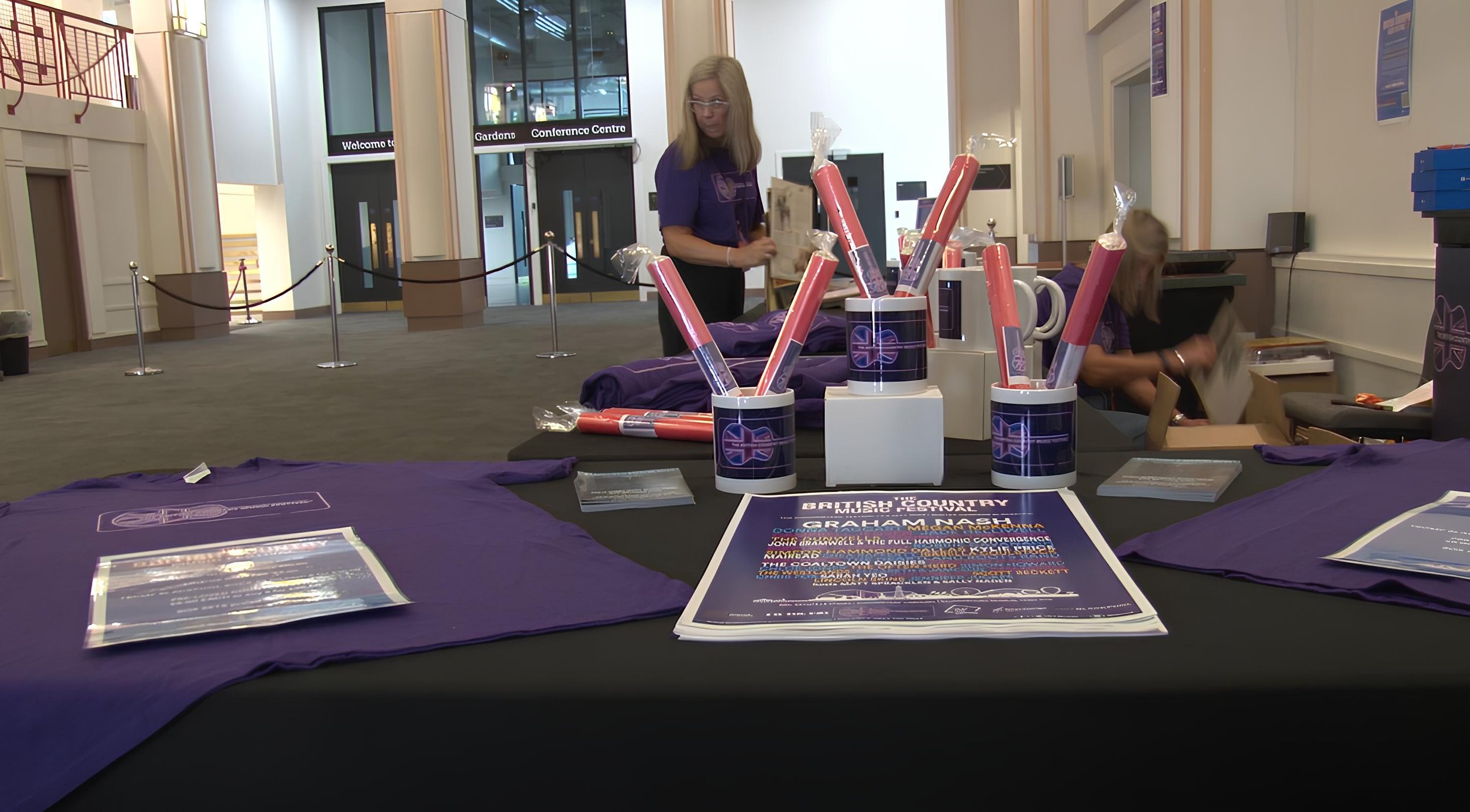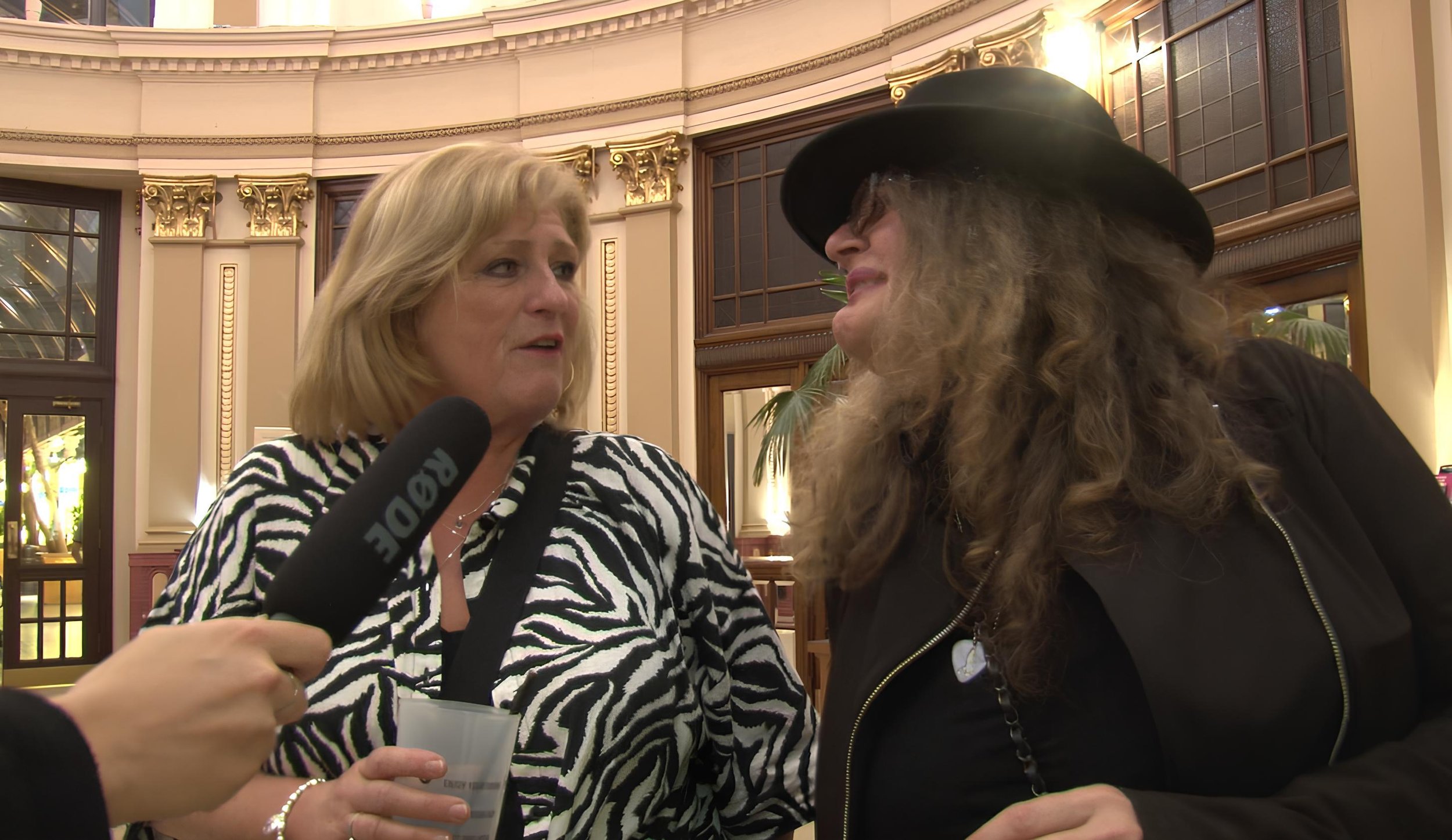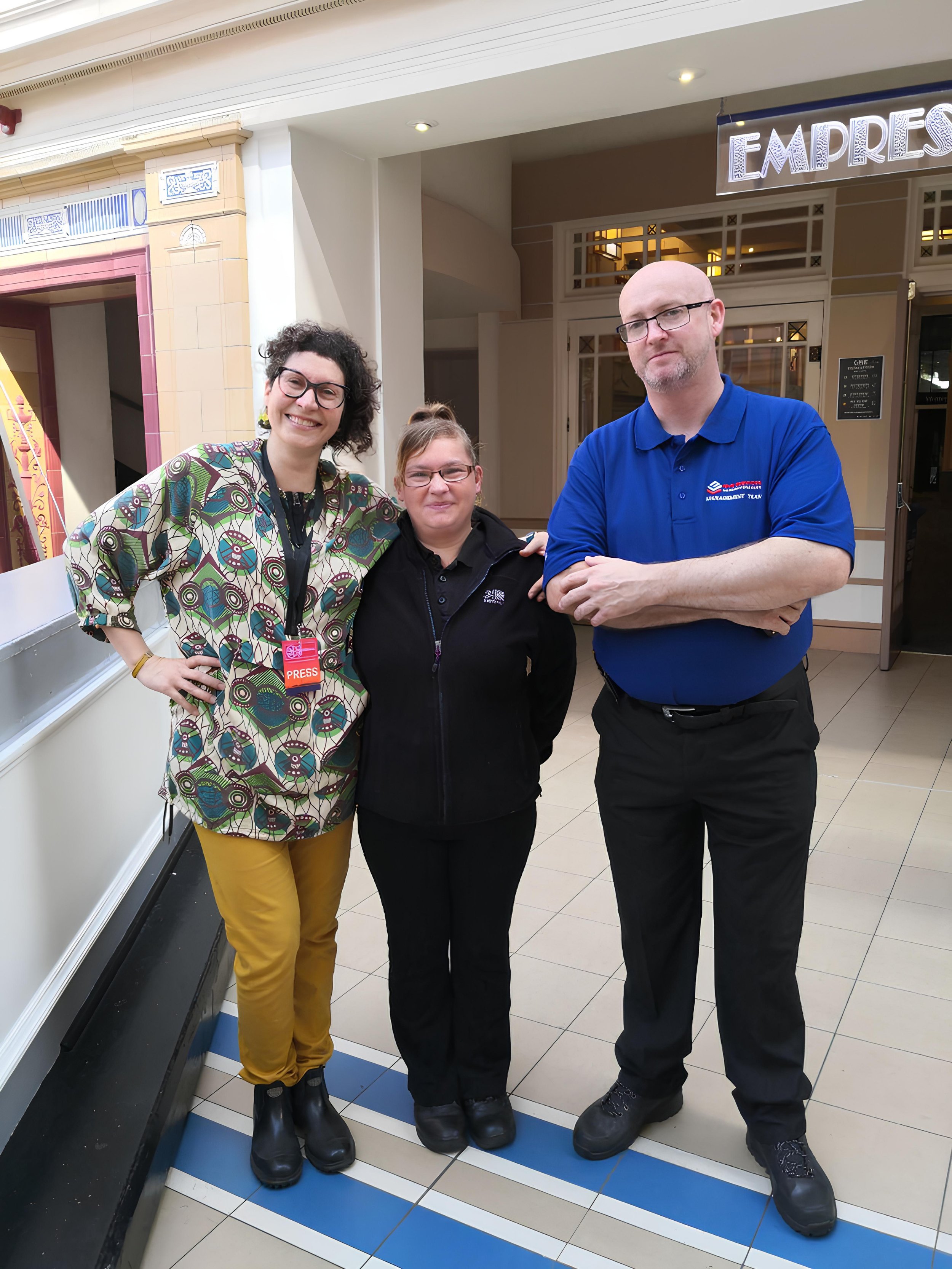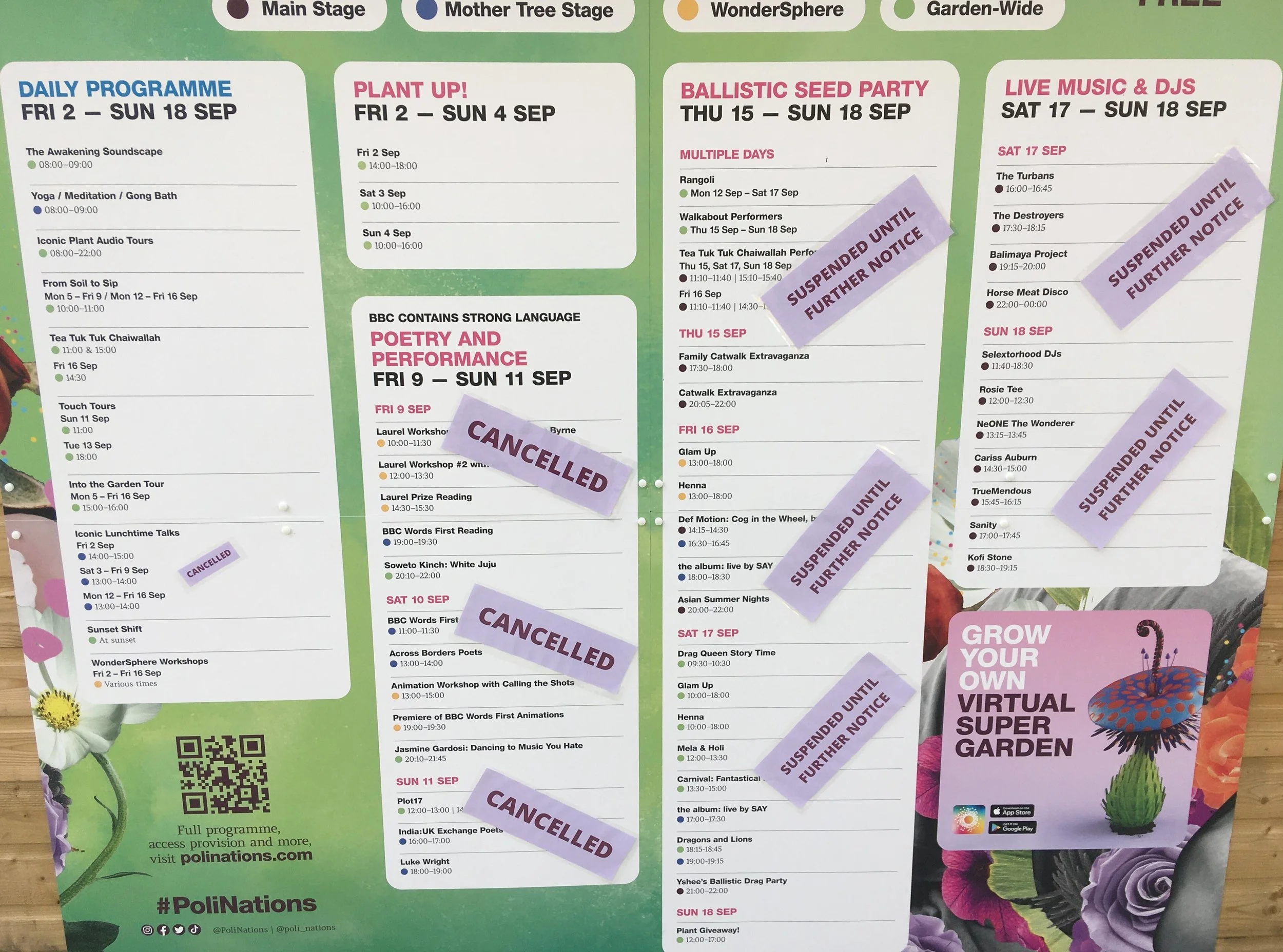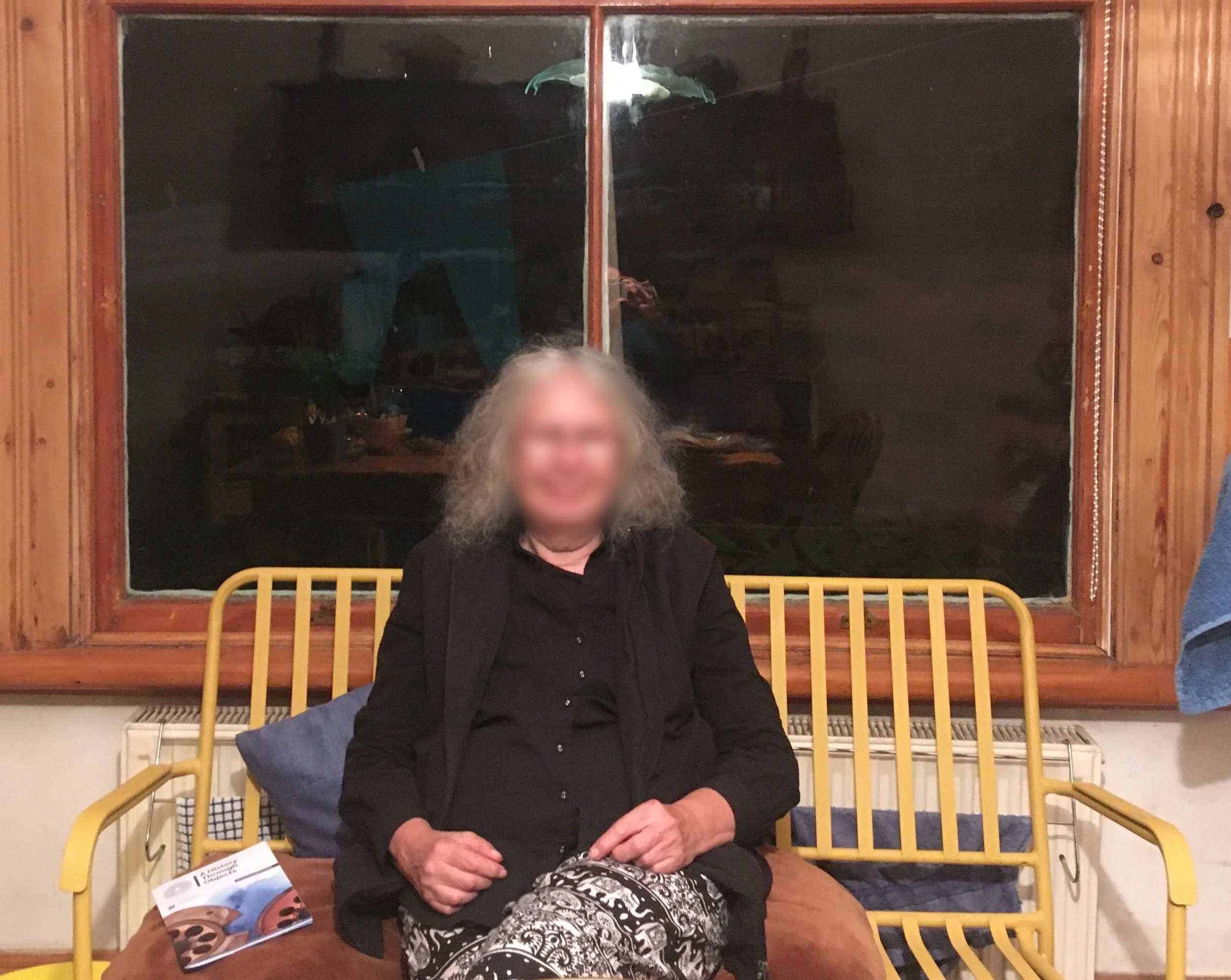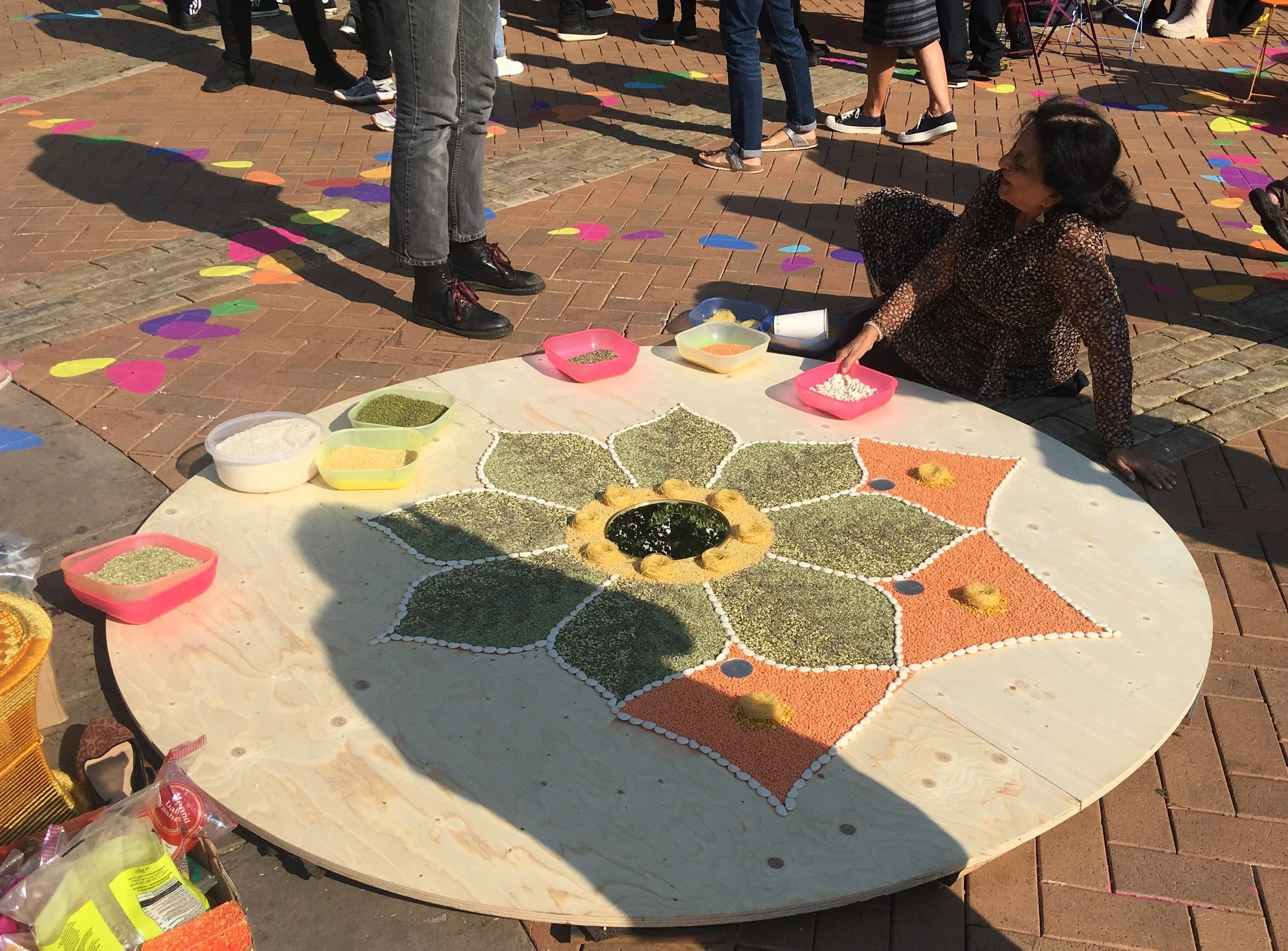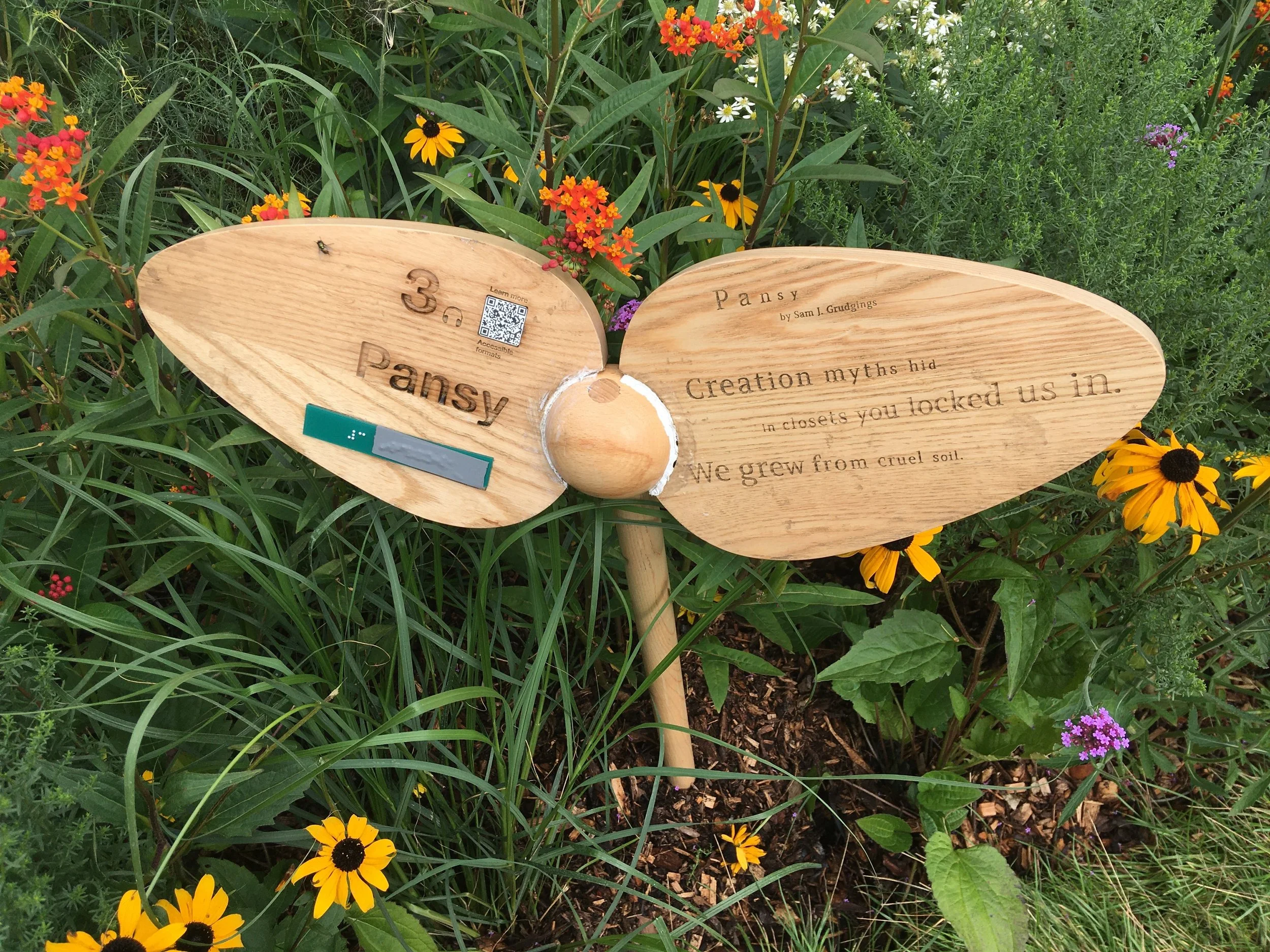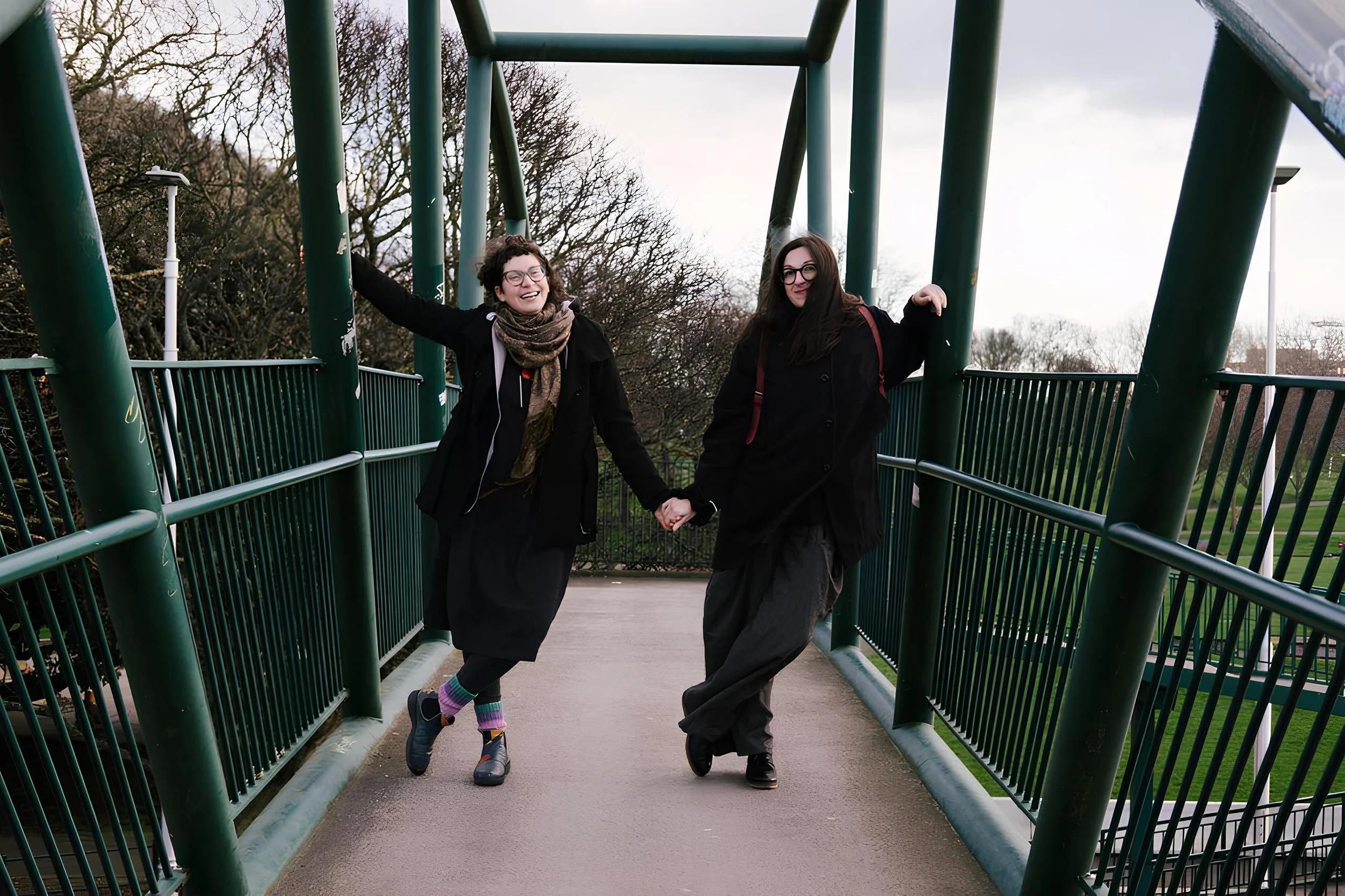
FIELDWORK ACTIVITIES
A substantial part of the SoD project was based on the use of ethnographic research methods. More specifically, I undertook ethnographic research at the two following music-cultural events:
“PoliNations” within the 2022 British national celebration “UNBOXED: Creativity in the UK” aka “Festival of Brexit” in Birmingham, UK, 2-18 September 2022 (by means of participant observation)
“The British Country Music Festival” (TBCFM) in Blackpool, UK, 1-3 September 2023 (by means of visual ethnography)
PoliNations
PoliNations (PNs) was one of ten events combining science, technology, engineering, the arts and mathematics that were selected within “UNBOXED: Creativity in the UK” - a national celebration following Brexit. The UNBOXED series of events took place across Britain from March to November 2022.
PNs was a spectacular pop-up garden with giant architectural trees and thousands of plants hosting free events, workshops and performances including live music, dance, spoken word and drag. The project’s main idea was to celebrate Britain’s cultural diversity through the metaphor of British plants and their migratory trajectories, while emphasizing the importance of biodiversity, green spaces and healthy environment.
PNs took place in Birmingham’s Victoria Square between the 2nd and 18th of September 2022.
The overall budget for PNs was £8 million. It was commissioned as part of UNBOXED and also presented as part of Birmingham 2022 Festival, a six-month long cultural program which ran alongside sporting action at the Commonwealth Games.
PNs was produced and led by the Bristol-based arts organization Trigger and a group of creatives and experts in horticulture, arts, science and architecture.
Documenting festival fieldwork
FESTIVAL SITE
The main PNs program was distributed between two stages: Main Stage and Mother Tree Stage, and a workshop dome called Wondersphere (see the PNs map).
THE PNs MAP
MOTHER TREE STAGE
MAIN STAGE
WONDERSPHERE
INFORMATION BOOTH
FESTIVAL PROGRAM
Diversity was a key theme of the PNs event and, as such, it stirred up much discussion across the media as well as in the interviews with my interlocutors. Even from a quick glance at the thematic categorization of the PNs program, it becomes clear that the PNs producers made an effort to acknowledge and include all types of minorities in it (from sexual and ethno-racial to people with disabilities).
THE PNs PROGRAM
FESTIVAL FIELDWORK
My fieldwork at PNs lasted for 10 days (6-15 September 2022). Immediately after starting with the field observations, the Queen Elizabeth II passed away. In consequence, a substantial part of the PNs program – almost all live performances – was cancelled until the end of the event on September 18th (i.e., one day before the funeral ceremony on Monday, September 19th). This, together with the reluctance of PNs producers to cooperate on this research , gave rise to a new thematic focus and to an unanticipated theoretical framework for the study – that of censorship.
The reduced PNs program notwithstanding, I undertook as many fieldwork activities as possible. In addition to the field observations, I conducted 7 in-depth interviews with 8 people in total. All my interlocutors were highly educated people, interested or directly involved in arts and cultural activities, and with a strong sense of social responsibility and justice. More broadly, the sample was diverse enough in terms of race, ethnicity, gender, cultural tastes, professional roles, and age to some extent, but lacked diversity in terms of class, political and sexual orientations.
KEY INTERLOCUTOR
OTHER ASPECTS OF THE FESTIVAL (visual documentation)
Audience participation
Musical performances and artmaking
The PNs banners
Some of the PNs Garden’s details, such as Iconic Plants and public toilet signs
Dancing with Jaivant Patel
Tuk Tuk Free Chai Service
Tuk Tuk Chaiwallah Performance
Rangoli-Making by Ranbir Kaur
Sunset Shift (music & light)
PNs Banner 1
PNs Banner 2
PNs Pole Banners
Pansy - One of the PNs Iconic Plants
Iconic Plant-Inspired Sculpture
Public Toilet Sign

ETHNOGRAPHIC DOCUMENTARY
The British Country Music Festival
WINTER GARDENS
BLACKPOOL
1-3 SEPTEMBER 2023
A short description of the project
This ethnographic filming project sought to explore the relationship between contemporary British country music as promoted at and by The British Country Music Festival (TBCMF) and the wider social realities in post-Brexit Britain, with a special focus on the festival participants’ passion for country music and personal stories associated with it.
My filming assistant Dr Tamara Kolarić from DCU SALIS & I
There were several reasons for the choice of TBCMF as a case study:
The festival’s concept is truly unique. TBCMF focuses on Britain’s country and Americana music artists, while at the same keeping the very concept of country music open and inclusive. Contrary to a great majority of other British music festivals that are intended for more liberal, left-leaning audiences, TBCMF appears to be designed to maximize audiences across the board. This approach thus helped generate more fruitful insights into the topic under study.
TBCMF is a relatively young and independent festival of a smaller size. The TBCMF participants were therefore accommodating and sympathetic to our filming endeavor, potentially more compared to their counterparts in Britain’s larger and better-established music festivals.
TBCMF is one of the rare music festivals that take place indoors, specifically, in a visually appealing and historically significant setting of Blackpool’s Winter Gardens. This fact alone contributed considerably to the cinematic pull of the documentary, to the technical manageability of the filming process, as well as to a greater sense of personal safety on the festival site.
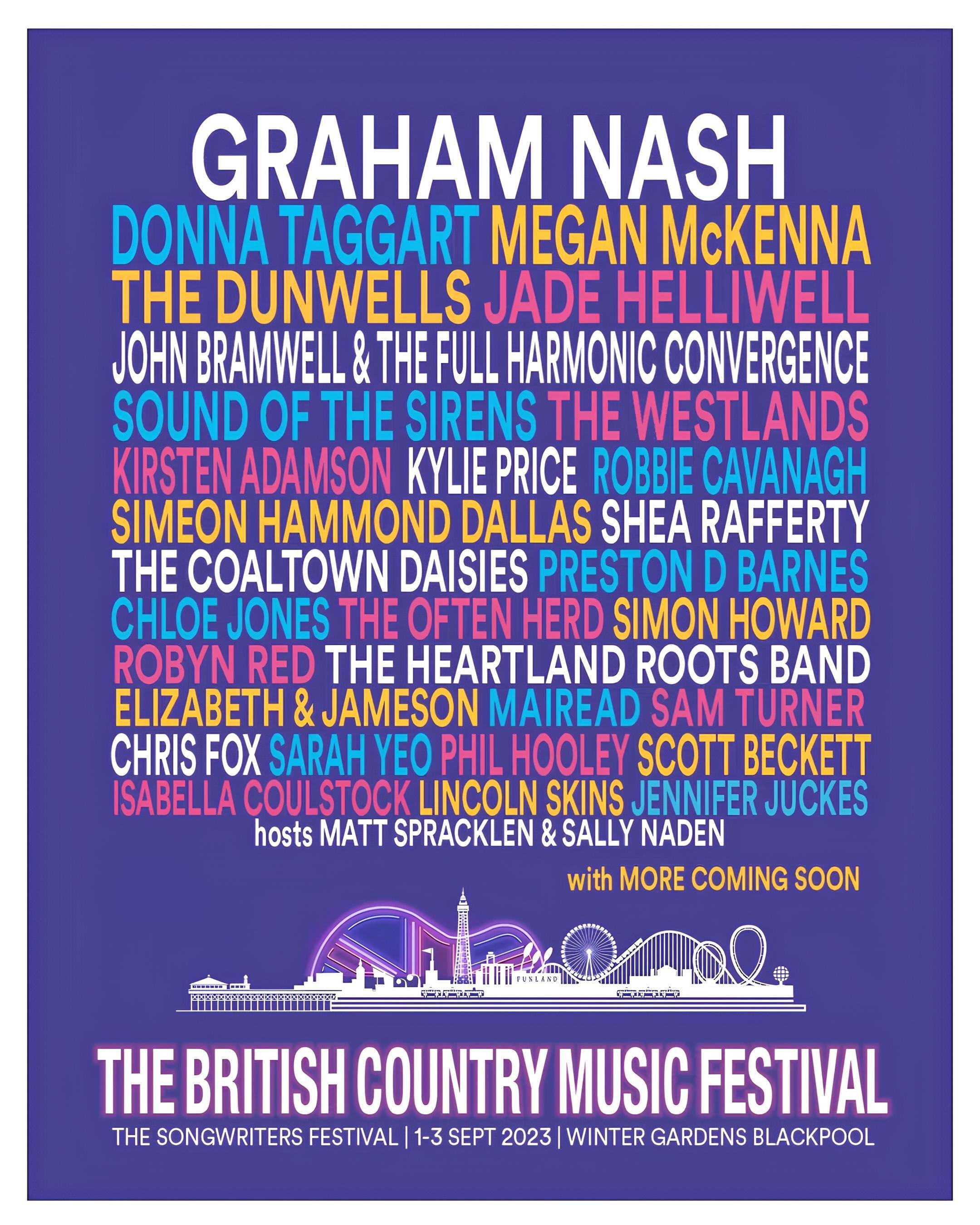

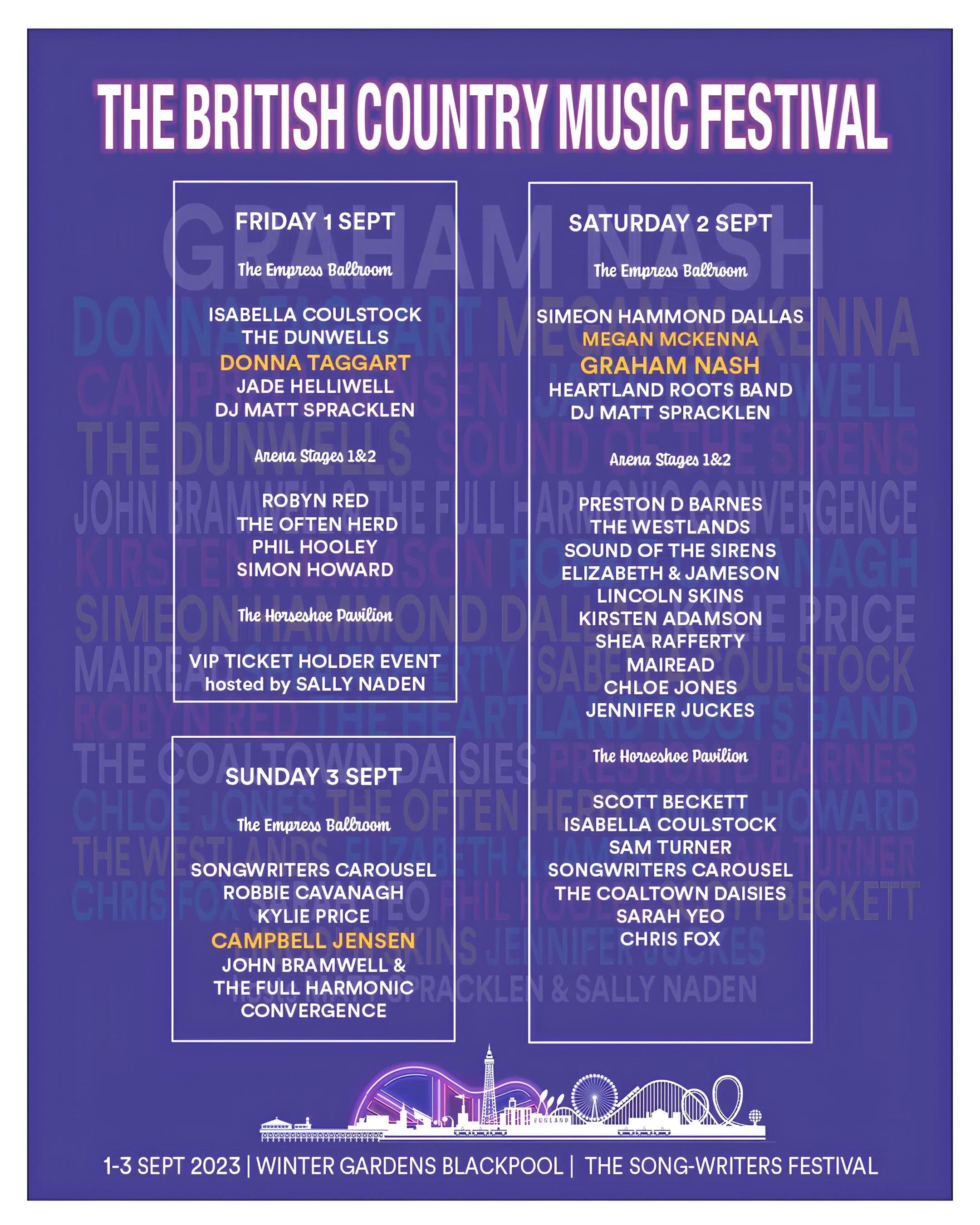
Preparations for filming included:
Taking a short course in Ethnographic Filmmaking at University of Manchester’s Granada Centre for Visual Anthropology, 5-16 June 2023 (click hear to see Course Outline)
Applying for and obtaining a permission for filming from both TBCMF festival organizers (Martin and Marina Blore) and Blackpool Council
Buying a second-hand Sony Camcorder HDR-AX2000 (in the picture)

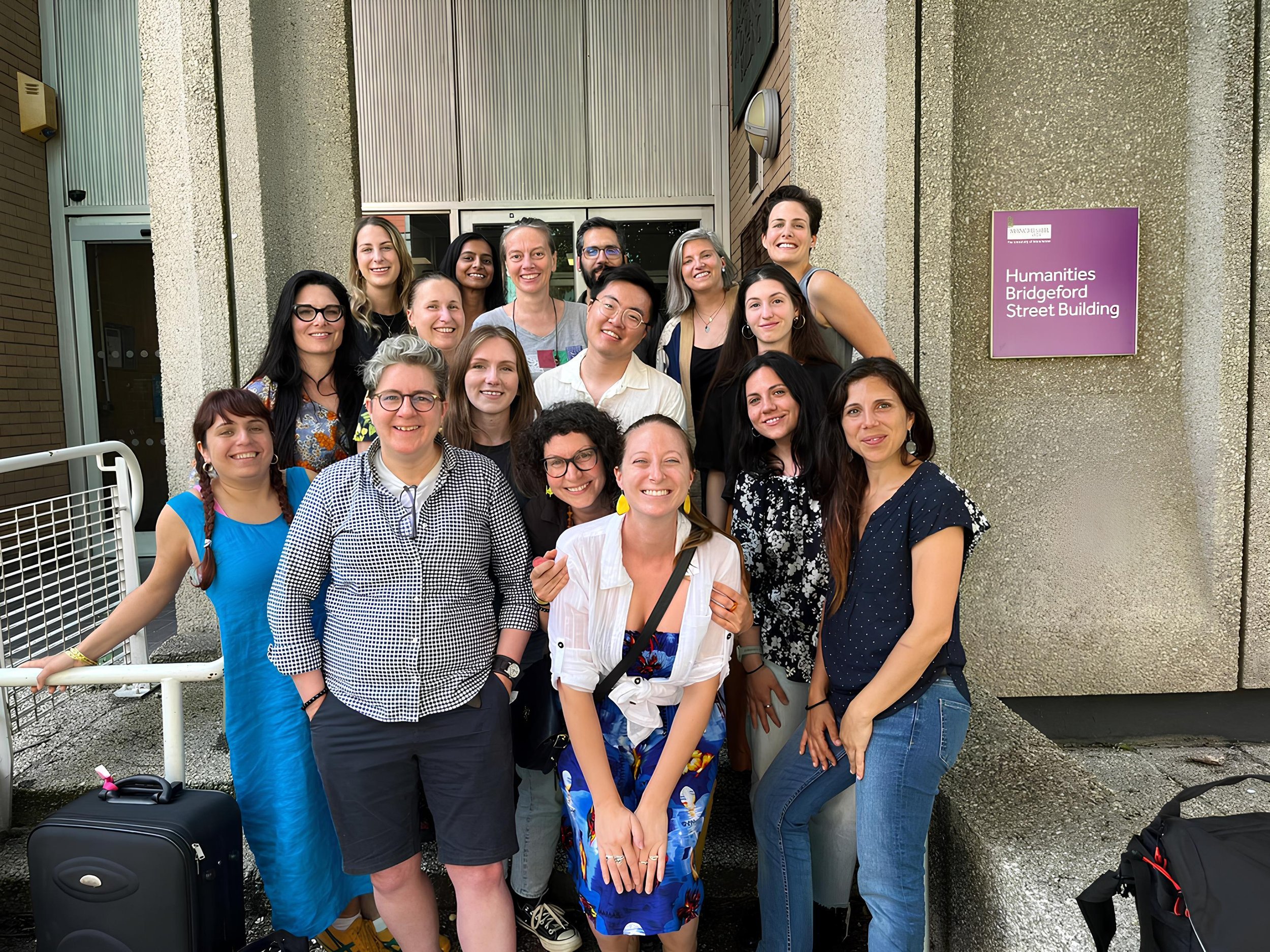
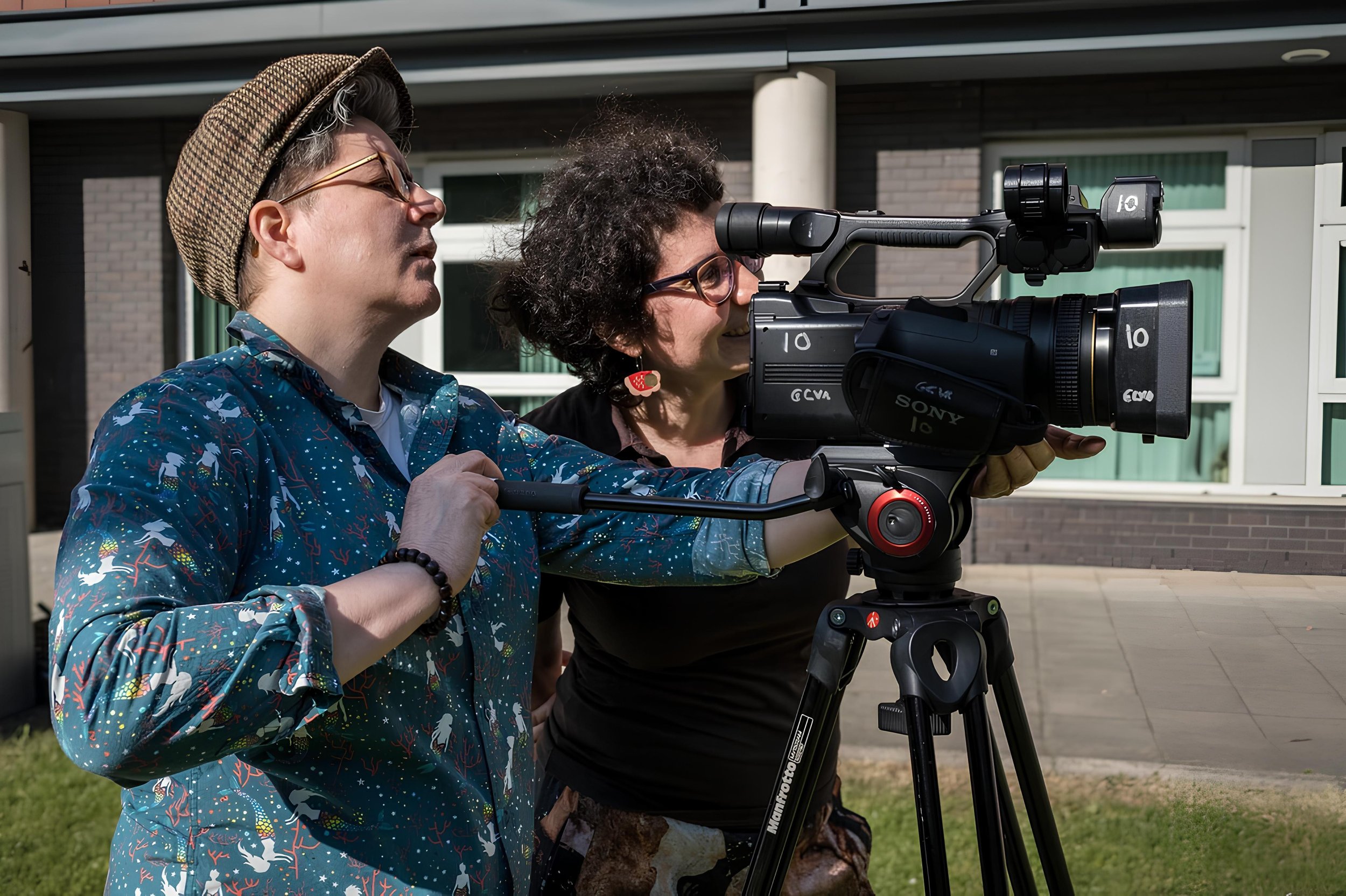



Vinyl Foreva
“Vinyl Foreva” is a short ethnographic movie made as part of Granada Centre’s Ethnographic Documentary course and as its final output.
The movie was made together with Tiffany Wade, another course attendee, and in collaboration with Manchester’s renowned record store Vinyl Exchange.
“Vinyl Foreva” is about the late Rae Donaldson, a longstanding Vinyl Exchange store manager, and his profound relationship to vinyl.
Ethnographic filmmaking at TBCMF consisted of three types of activities:
Taking video footage of Blackpool’s central area (especially around and in the TBCMF venue: Winter Gardens), of the festival itself (especially musical performances and audience engagement), and of the festival closing.
Video recording of brief on-site interactions and informal chats with the TBCMF musicians and audience members alike for the whole duration of the festival
Conducting a series of in-depth, video-recorded interviews with a small but carefully selected number of festival participants, arranged immediately after the festival (from Monday to Friday, 4–8 September 2023); namely: with Marina and Martin Blore as TBCMF organizers, with Preston D Barnes as a participating local country musician, and with Will Hope as a regular TBCMF audience member and a (British) country music fan
In these separately arranged interviews, the subject of Brexit was not discussed directly but rather linked to a corpus of various festival-related topics. The list of discussion themes was tailored to fit the role and experience of the interviewee at TBCMF, and included but was not limited to the following:
The (hi)story of TBCMF: the festival’s concept, aim and vision (e.g.: What place does TBCMF have in the ecosystem of music festivals, both nationally and internationally? Has Brexit caused any repercussions on the festival in terms of organization, resources available, conceptualization, aesthetic orientation, programming, and public reception?)
The concept of country music in general and at TBCMF in particular (e.g.: What kind of communities and what kind of values does this musical genre represent, especially in the British context? Are there any tensions around the specific definition of country music promoted by and at TBCMF? How does the broadly defined British country music relate to the ideological divide revealed by the Brexit crisis?)
The choice of music artists for TBCMF (e.g.: What does the concept of “homegrown” music artists mean in a global era? Have you encountered any issues with regard to arranging performances of Irish and other European artists caused by Brexit?)
The experience of TBCMF from various points of view (producers’, musicians’ and audience members’) in general, and in relation to Brexit (e.g., changes in the UK music business; the choice of themes and styles in country songs; the choice of festivals visited)
Relevant and memorable impressions, anecdotes and details from TBCMF 2023
The festival’s target audience group
The festival’s media reception
What is British and what not about TBCMF?
The festival’s organizational details and future plans (e.g., gender equality, eco-friendly policies, disability access, support for UK songwriters and Blackpool community, the festival’s expansion)



